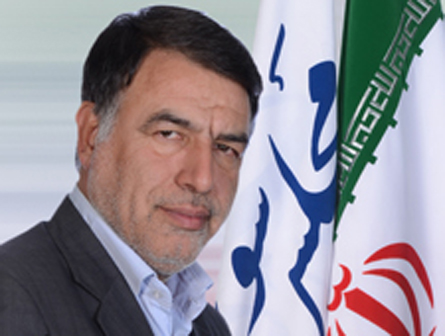ID :
306367
Mon, 11/11/2013 - 09:09
Auther :
Shortlink :
https://oananews.org//node/306367
The shortlink copeid
MP: France’s Role In N-talks Not Determining

Tehran, Nov 11, IRNA – A prominent lawmaker said under the current conditions and keeping in mind the progressed path, the French do not play a determining role in Iran’s nuclear talks with P3+3.
“France might affect the process of negotiations with the 5+1 Group (the 5 UN Security Council veto vote wielding powers plus Germany), but it cannot disturb the present day positive conditions,” Member of the Parliament’s National Security and Foreign Policy Commission Abbas-Ali Mansouri told IRNA on Sunday.
Pointing out that the influence region of France is the small Arab countries in the Middle East and North Africa, he said that the axis countries in the western camp in these nuclear talks are the United States and Britain today.
He referred to the positive roles thus far played by Russia and China in near and far past and the proximity of the US negotiators’ stances with the Islamic Republic, saying that it is not likely that the French will be able to play a determining role in the talks.
Mansouri said that the existence of differences of opinion among the western countries is a natural phenomenon of which Iran should gain maximum benefits from, in line with its own interests.
“It is quite a remote possibility to assume that the western countries have commissioned France to sabotage the process of the negotiations by playing a negative role,” he reiterated.
He said that the sensitivity of the negotiations will once again increase as of the last week of November, stressing that with the present day good shape, and considering the existence of differences of viewpoints, achieving the end-line for the nuclear talks with the six world powers overnight is impossible.
Iran and six world powers did no manage to late Saturday to seal a confidence-building deal, but the sides agreed they had made enough progress during the three days of talks to hold another round to gain something tangible out of the hard work.
The sides were unable to bridge their differences and reach a preliminary agreement in which Iran would curb its nuclear activities in exchange for an easing of tight western financial, energy and other sanctions. The longer-term aim is to reach a comprehensive settlement.
US Secretary of State John Kerry, speaking Sunday on “Meet the Press,” said the world powers negotiating with Iran are looking for an agreement with Tehran...
“We are absolutely determined that this would be a good deal, or there will be no deal,” Kerry said. “That’s why it’s hard. That’s why we didn’t close the deal here in the last couple of days...”
On Sunday, Iranian President Hassan Rohani said in an address to parliament that uranium enrichment is a “red line” that can’t be crossed. His comments repeat past declarations on what the country says is its right to produce nuclear fuel within the nuclear NPT.
The talks are to resume November 20, and the European Union foreign policy chief, Catherine Ashton, who chairs the six-power bloc, said the next round would be at a lower level, involving senior officials, but not ministers.
“I think it was natural that when we started dealing with the details there will be differences of opinion,” Zarif said at a joint news conference with Ashton on Saturday. “I’m not disappointed at all. What I was looking for was the good will and determination. And I think we’re all on the same wavelength.”
France, which had some of the strongest reservations among those taking part in the talks, also expressed cautious optimism.
French Foreign Minister Laurent Fabius told French radio Saturday there were points in a draft text that France couldn’t support. That included concerns about what Iran would do with its stockpile of enriched uranium and a French demand that Iran should suspend all work on its heavy water nuclear reactor in Arak./end





